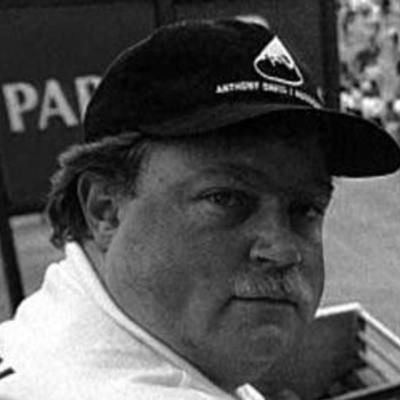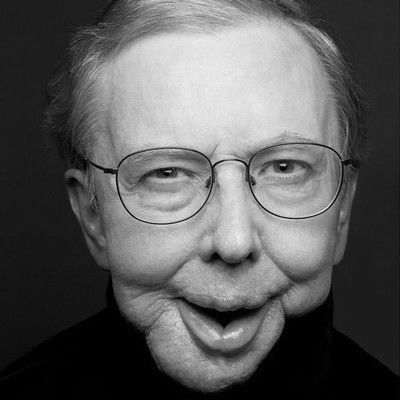The Great Right Hype
Tucker Carlson: The bow-tie is gone, but the moxie remains.
Tucker Carlson: The bow-tie is gone, but the moxie remains.
Joel Meares Columbia Journalism Review Aug 2011 15min Permalink
Will the literature of the suburbs be written on TikTok?
Daisy Alioto Dirt Mar 2021 20min Permalink
A profile of Larry King at the height of his fame and on the heels of his sixth divorce.
David Finkel Washington Post Jan 1991 20min Permalink
The newsletter service is a software company that, by mimicking some of the functions of newsrooms, has made itself difficult to categorize.
Anna Wiener New Yorker Dec 2020 20min Permalink

How the media and law enforcement fingered the wrong man for the 1996 Olympic Park bombing.
Marie Brenner Vanity Fair Feb 1997 1h15min Permalink

A profile of the film critic.
Chris Jones Esquire Mar 2010 30min Permalink

A profile of Edna Buchanan, a Pulitzer Prize-winning crime reporter for the Miami Herald during its heyday.
Calvin Trillin New Yorker Feb 1986 30min Permalink
On conservative radio host John Ziegler and “the strange media landscape in which political talk radio is a salient.”
David Foster Wallace The Atlantic Apr 2005 55min Permalink
Deep Throat, unmasked.
John D. O'Connor Vanity Fair Jul 2005 30min Permalink
How the media company failed to create “a safe and inclusive workplace” for women.
Emily Steel New York Times Dec 2017 15min Permalink

Best Article Arts Business Media
A review of several books on Rupert Murdoch first criticizes the authors for not grasping the many sides of their subject, then offers a thesis of its own. He’s “not so much a man, or a cultural force, as a portrait of the modern world.”
John Lanchester London Review of Books Feb 2004 25min Permalink

Bill Conradt, a well-known prosecutor, never arrived at the house in Murphy, Texas, where police and a crew from NBC’s To Catch a Predator were waiting. So the crew, along with a SWAT team, went to Conradt.
Luke Dittrich Esquire Feb 2009 Permalink
For 60 years, the weekly Evening Whirl attacked the drug lords, whoring preachers, and hypocritical bourgeoisie of St. Louis’ black community, sometimes in rhyming Iambic couplets.
Scott Eden The Believer Nov 2006 25min Permalink

Best Article Arts Politics Media
A profile of the man who helped invent the modern art of presidential spin and came to embody the blurry line between journalist and government official.
Michael Kelly New York Times Magazine Oct 1993 50min Permalink
On the 1988 presidential election and the boys on the bus.
“American reporters ‘like’ covering a presidential campaign (it gets them out on the road, it has balloons, it has music, it is viewed as a big story, one that leads to the respect of one’s peers, to the Sunday shows, to lecture fees and often to Washington), which is one reason why there has developed among those who do it so arresting an enthusiasm for overlooking the contradictions inherent in reporting that which occurs only in order to be reported.”
Joan Didion New York Review of Books Oct 1988 40min Permalink
On the talent, ego, and late father of Bryant Gumbel.
Rick Reilly Sports Illustrated Sep 1988 20min Permalink
How the “genial Bavarian” version of Adolf Hitler became a global media celebrity, “a plain-living gentleman with a soft spot for dogs and children.”
Despina Stratigakos Places Journal Sep 2015 35min Permalink
Confessions of a presidential campaign reporter.
Michael Hastings GQ Oct 2008 20min Permalink
A profile of Jill Abramson from her first weeks as executive editor of The New York Times.
Ken Auletta New Yorker Oct 2011 45min Permalink
On Silvio Berlusconi’s hedonism.
Berlusconi is Italy’s waning Hugh Hefner, alternately reviled and admired for his loyalty to his own appetites—except that he’s supposed to be running the country.
Ariel Levy New Yorker May 2011 40min Permalink
A media firestorm circles around a lucky amateur magician.
"By now, the actual doing of the spell—the Clean Casting—felt like a weird dream that Peter had concocted after too many drinks. The more people made a fuss about it, the more he felt like he’d made the whole thing up. But he could still picture it. He’d gotten one of the stone spellcasting bowls they sold on late-night cable TV, and little baggies of all the ingredients, with rejected prog rock band names like Prudenceroot or Womanheart, and sprinkled pinches of them in, while chanting the nonsense syllables and thinking of his desired aim."
Charlie Jane Anders Lightspeed Magazine Oct 2013 25min Permalink
A husband is wrongfully credited for his wife's heroic act.
"Immediately, Ron was sick, wishing that he was in the water and not her. But the shock of it all had scrambled his mind and it was confusion that held him, pretty much taking the wind out of him. He couldn’t get moving. Joy was the better swimmer, anybody would say so. Watching her flailing about out there with the old woman was painful. Still Joy’s strong, a fighter, she’ll be okay, he kept telling himself. And finally she was. The water got still out there and she had control. She was moving toward the shore, dog paddling, kicking water up behind, tugging the old woman along. Christ, by the hair, he ascertained when they got closer."
Jerry Whitus Slush Pile Feb 2013 Permalink
A wounded soldier is groomed for his media appearances in this setpiece from Abrams' satirical novel.
"Kyle Pilley was one of the best moneymakers the division had seen in the past six months and Harkleroad was practically piddling his pants with glee at the thought of all the goodwill his story would buy them in the mainstream media. He was already laying plans for Pilley to be interviewed, via remote satellite, by the Big Three morning-breakfast news shows (Good Morning America was on board, Today and CBS This Morning were teetering on the brink of a yes), not to mention features in the New York Times, Los Angeles Times, and, if Harkleroad was really, really lucky, Time and/or Newsweek. Yes, Kyle Pilley was the best thing to happen to Lieutenant Colonel Eustace Harkleroad and the rest of the Shamrock Division since they’d entered Iraq."
David Abrams Electric Literature's Recommended Reading Jan 2012 15min Permalink
A wide-ranging chat with the magazine editor.
Michael Kinsley New York Nov 2012 20min Permalink
“If you have read 6,000 books in your lifetime, or even 600, it’s probably because at some level you find “reality” a bit of a disappointment.”
Joe Queenan The Wall Street Journal Oct 2012 10min Permalink